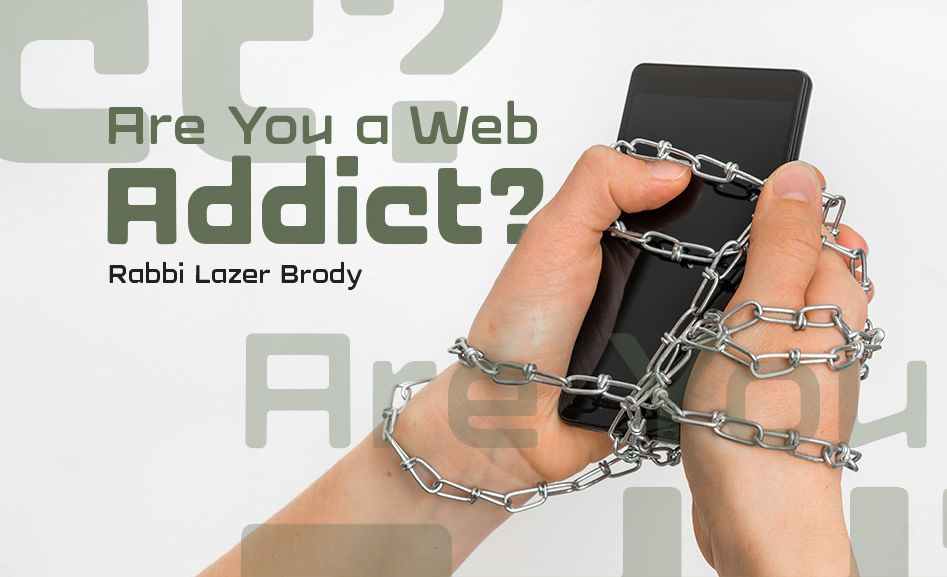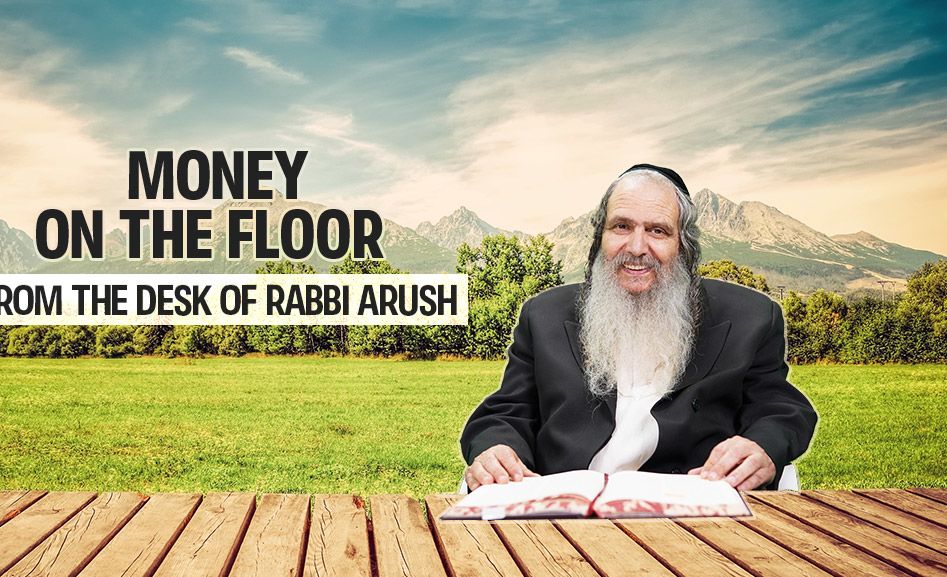
Get a Life
Time isn’t money – time is LIFE and life is precious because it is limited by definition. Don’t let it slip through your fingers!

As a final conclusion to the weeks of Shovevim, which ends this week with the final mem – Mishpatim – I would like to wrap up the incredible series we have featured on the dangers of the internet and anything with a screen:
A few years ago, my husband and I had a meeting with Rabbi Elchanan Elgrod shlita, the posek for our Yeshiva. As an aside, he mentioned to us how nice it was to speak with people without smartphones. That is, we could actually sit with him, and carry on a normal conversation! He commented that it has become a serious problem within the community that people are unable to focus on their Torah learning, among other issues, because of their smartphones. The average attention span of someone with a smartphone is just 6 seconds! Just yesterday, he said that he sat trying to help a man with a serious problem, and yet the man still could not stop looking at his smartphone every time it beeped, every few seconds… He finally had to tell him: “Either turn off the phone, or I’ll have to end the meeting…”
This happened to me personally as well. A good friend of mine used to come visit me here in Jerusalem once a year or so. We had so much fun going out to lunch, or just hanging out in the evening after my kids went to bed. During the last trip, after a few days, I realized that I had hardly really spoken with her. I felt like there was a block this time. During our next meetup, I realized the root of the problem: Since our last trip, she had bought a smartphone! Now she looked at it all the time, so we couldn’t get into a deep conversation about anything real. The phone was constantly interrupting the flow of conversation, so we never got past the initial superficial comments that usually begin a real one-on-one convo. On the spot, I asked her to please check it during the times we are not together, and put it away when we meet. We greatly enjoyed the rest of the trip, just like previous trips.
A final anecdote: I went out to a nice dinner with my husband a few months ago – just us. We hadn’t done that in FOREVER. The waiter noticed that this was something special, and even gave us dessert on the house! While I was waiting for the food to be served, I noticed that at the next table over sat a family. It looked to me like two parents and some grown children, at least one married. They hardly talked to each other – each one had a smartphone, which they checked every few minutes. Then they would talk for a minute, and check their phones again…
“What a shame,” I thought to myself. “Even at a special dinner out, they don’t get any real quality time together. Instead of paying attention to the real people in front of them, they are focusing on their smartphones…”
So, now let’s get real. What on earth is going on here?! Loss of concentration ability, loss of deep relationships, loss of quality time… is it any surprise that increased time on the screen is directly related to increased rates of depression and loneliness?
Rabbi Arush once told a story about a young unmarried girl who handed him her KOSHER filtered smartphone to smash. She heard that he says that the “kosher” label is totally fake, and realized that he was right, in that she had become a slave to the thing. Kosher! Rabbi Arush gave her a huge blessing to find her soulmate on the spot. He commented that in the Heavenly Court after we leave this world, even if we didn’t do anything wrong, speak or read evil speech, see forbidden images, etc. we will pay dearly just for the time we wasted on the screen.
And let’s face reality – as discussed previously in this series, it is virtually impossible to totally avoid all the many sins involved in the Internet, even with concerted effort. I heard in the name of a Gadol B’Torah – “Basically, everything that the Torah tells us to do – the smartphone brings us to the opposite!”
As someone who works on the computer, I can testify how difficult it is to manage time while engrossed in a screen – even for work. In most of my life, I am in control. I decide in what order to do things, and manage my priorities against my time. With the computer, it’s exactly the opposite. Even if I am supposed to stop at a certain time, almost always I end up working however long it takes, without really noting the time. Suddenly the house is exploding around me and I can’t believe how many hours it’s been… and I know that I am not alone in this experience.
The goal has to be to get off the screen, get out of the imaginations of the Evil Inclination, of the Angel of Death, and get back into real life as fast as possible. Set boundaries, borders, alarms – whatever it takes. Think twice before you check in, because you might just spend many more times the amount of time that you meant to spend in the fake world of the screen. Keep it strictly business, with a strong desire to get off.
Because what does getting off the screen mean? LIVING REAL LIFE! Even if it is hard, even if it isn’t always what we want – IT IS LIFE! Needless to say, our only hope for improving our real life isn’t running away into fake-world to stick our heads in the sand. Eventually, we will be forced off the screen, and real life just gets worse and worse, as we despair more and more, and run farther away from life into the imaginary land where the pain is numbed. It’s no different than the drunkard running to his whiskey…
I hate quoting songs, but “Wasted” is a mantra of mine: “I ain’t spending no more time – Wasted!” I don’t want to “wake up one day and find that I let all these years go by, wasted!” Life is inherently precious. It ain’t always easy, but it’s life – and those moments, days, and years don’t come back.
Time isn’t money – time is LIFE and life is precious, because it is limited by definition. Don’t let it slip through your fingers!
***
Rachel Avrahami grew up in Los Angeles, CA, USA in a far off valley where she was one of only a handful of Jews in a public high school of thousands. She found Hashem in the urban jungle of university. Rachel was privileged to read one of the first copies of The Garden of Emuna in English, and the rest, as they say, is history. She made Aliyah and immediately began working at Breslev Israel.
Rachel is now the Editor of Breslev Israel’s English website. She welcomes questions, comments, articles, and personal stories to her email: rachel.avrahami@breslev.co.il.








Tell us what you think!
Thank you for your comment!
It will be published after approval by the Editor.